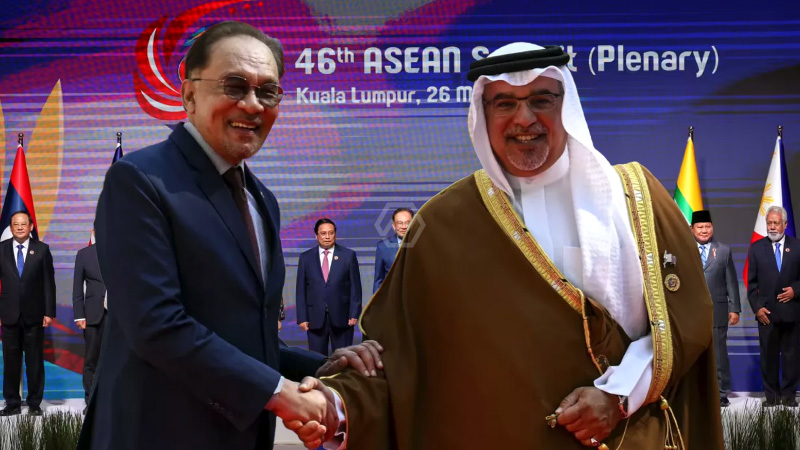- Anwar urges a special ASEAN-US summit to address Trump‘s sweeping tariffs.
- ASEAN-Gulf-China trilateral summit aims to boost regional resilience.
- Leaders push for unity on Myanmar, South China Sea, and intra-ASEAN trade.
Malaysian Prime Minister Anwar Ibrahim has called for urgent dialogue with the United States in response to President Donald Trump’s new tariff regime, which imposes duties of up to 49% on Southeast Asian imports.
Meanwhile, ASEAN is actively engaging with both the Gulf Cooperation Council (GCC) and China in efforts to diversify trade partners and build economic resilience.
ASEAN Navigates U.S. Tariffs and Myanmar Crisis With Broader Alliances
At the 46th ASEAN Summit in Kuala Lumpur, Malaysian Prime Minister Anwar Ibrahim announced a bold diplomatic initiative: a request to U.S. President Donald Trump for a special ASEAN-U.S. summit. This comes in the wake of Trump’s tariff announcement in April, which will impose steep import duties on several ASEAN nations beginning in July. Anwar stressed the urgency of a united regional stance to protect Southeast Asia’s export-driven economies.
Beyond U.S. trade concerns, ASEAN leaders used the summit to strengthen alliances with the Gulf Cooperation Council and China. The tripartite summit sought to build economic resilience, with both the GCC and China signaling deeper investment and cooperation. The Gulf is already ASEAN’s seventh-largest trade partner, and Beijing continues to position itself as a reliable counterweight to U.S. influence in the region.
The summit also focused on regional security issues, particularly the ongoing crisis in Myanmar. Anwar highlighted quiet engagement efforts, including separate talks with the junta and opposition. A proposal to appoint a permanent ASEAN envoy to Myanmar was discussed, signaling a shift toward longer-term mediation efforts. The bloc also announced an Informal Advisory Group led by former Thai Prime Minister Thaksin Shinawatra.
South China Sea tensions remain a priority. Philippine President Ferdinand Marcos Jr. reiterated the need for a binding Code of Conduct with China to prevent further maritime conflicts. ASEAN leaders acknowledged the urgency of balancing their strategic ties with both Washington and Beijing, as the region confronts rising geopolitical and economic headwinds.
As ASEAN faces rising protectionism and regional instability, its leaders are pushing for greater unity and diversified alliances—seeking not only to buffer external shocks but to shape a more resilient, multipolar future.
“Protectionism is resurging as we bear witness to multilateralism breaking apart at the seams.” – Anwar Ibrahim



